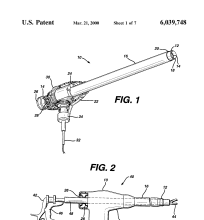Alzheimer’s disease is a complex and heartbreaking condition affecting millions of individuals and their families worldwide. Scientists continue to unravel the mysteries of its causes, including the role of genetics in its development. Family history can be a strong risk indicator, prompting many to consider their genes as part of the puzzle. While not all aspects of Alzheimer’s are understood, genetic influence remains a critical area of study. Keep reading for a deeper insight into how our DNA may predispose some of us to this debilitating disease.
Exploring the Link Between Genetics and Alzheimer’s Disease

Alzheimer’s disease is a neurodegenerative condition characterized by memory loss, cognitive decline, and behavioral changes. It is widely acknowledged that genetics contribute to the disease’s onset. Research shows that those with a family history of Alzheimer’s are at a higher risk, raising questions about the hereditary nature of the condition.
Genes function as the body’s blueprint, and certain genetic variations can increase the risk of Alzheimer’s. Extensive research has focused on the connection between these hereditary elements and Alzheimer’s. It highlights the need for a deeper understanding of genetics to help predict and potentially mitigate the disease’s impact.
While the inheritance of Alzheimer’s is not straightforward, specific genes have been identified that affect the likelihood of developing the disease. One such gene, Apolipoprotein E (APOE), is particularly noteworthy. Individuals with certain variants of this gene are at a much greater risk of developing Alzheimer’s disease.
To address the question many ask—is Alzheimer’s hereditary—it is indeed influenced by genetics, but the relationship is complex. Not everyone with risk genes will develop the condition, and not everyone with Alzheimer’s has known genetic risk factors. This suggests that other factors, including lifestyle and environment, also play significant roles.
The Role of APOE Genotype in Alzheimer’s Risk

The APOE gene exists in several forms, varying from person to person. The three primary forms are APOE e2, e3, and e4. The e4 variant is the most closely linked to an increased risk of Alzheimer’s, although it does not guarantee that a person will develop the disease. The presence of this variant can also influence the age at which symptoms begin to appear.
Meanwhile, the e2 form is thought to have a protective effect and may even reduce the risk of Alzheimer’s. The e3 form, the most common variant, appears to neutralize Alzheimer’s risk. This intricate relationship between APOE genotype and Alzheimer’s demonstrates the complexity of the genetic factors at play.
Evidence suggests that having one or two copies of the APOE e4 allele increases risk but does not predetermine an Alzheimer’s diagnosis. Screening for APOE genotype could inform individuals about their risk level and encourage preventive measures. However, such knowledge’s psychological impact and ethical considerations remain areas of active debate.
Researchers continue to explore how the APOE gene influences Alzheimer’s progression and how it interacts with other risk factors. This genomic insight is crucial for understanding the disease and developing personalized approaches to prevention and treatment.
Genetic Testing for Alzheimer’s Disease: Pros and Cons
Genetic testing can identify individuals with known Alzheimer’s risk genes, which can be a double-edged sword. On the positive side, such information may offer the chance for early intervention. People aware of risk can adjust their lifestyle, engage in preventive therapies, and plan for future healthcare needs.
Conversely, the knowledge of carrying a risk gene can cause anxiety and stress. Since a direct causal link between genes and disease development is not always clear-cut, the psychological burden of knowing one’s genetic risk can be substantial. Moreover, there are concerns about genetic privacy and the potential for discrimination in employment and insurance.
The accuracy and interpretability of genetic tests for Alzheimer’s are also subjects of concern. While tests can identify certain genetic markers, they cannot predict the disease with certainty. This uncertainty frames the debate around the utility and ethics of genetic screening for Alzheimer’s disease.
Medical professionals and genetic counselors play a crucial role in helping individuals understand the implications of genetic testing for Alzheimer’s. They provide guidance on the potential outcomes, support interpreting results, and assist with the emotional aspects of knowing one’s genetic risk.
Altogether, understanding the genetic risk factors for Alzheimer’s, particularly the role of the APOE gene offers valuable insights but also presents challenges in prediction and emotional impact. Genetic testing can inform preventive strategies, yet it requires careful consideration of its psychological and ethical implications.










